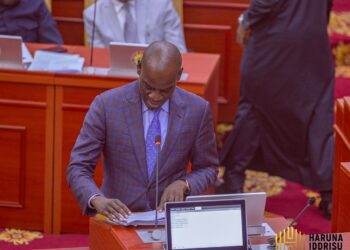Country Manager for Bolt Ghana, David Kotei Nikoi, has revealed that the ride-hailing app has reduced commissions from 25% to 20% for drivers in Accra and Kumasi.
According to him, this is an important step for the company to take, as the decision feels like the right thing to do at this time. He revealed that this will give drivers more of their earnings from each trip with Bolt.
Mr Nikoi noted that this is in line with the company’s commitment to listen and act on feedback it receives from stakeholders, taking into consideration the prevailing economic conditions in Ghana.
“We are aware of the economic challenges the country has faced in the last six months. We feel it too. Having listened to our drivers through the regular engagements we have with them, we agree that this reduction will go a long way to cushion them from the pressures they’re currently dealing with.”
David Kotei Nikoi
Mr Nikoi stated that since launching in Ghana a little over five years ago, Bolt has worked hard to ensure that drivers feel like an integral part of the business. From loyalty rewards to bonuses and more, Bolt has put incentives at the centre of its recruitment and retainment strategy for drivers.
In the past, Mr Nikoi stated that the platform gave “rewards to deserving drivers after achieving certain milestones. However, lowering the commission drivers give us for using the service benefits all drivers at once”.
Challenges of ride-hailing platform drivers
The Bolt Country manager indicated that Bolt drivers can earn about GHS 4,000 a month, with some top drivers earning over GHS 15,000. This new incentive, he explained, will boost the earning power of all drivers.
“We see this as motivation for more drivers to sign up and for existing drivers to stay on the app in order to maximise their earning potential.”
David Kotei Nikoi
Additionally, drivers have various opportunities to increase their earnings, such as accepting card payments and leveraging the GHc2 cashback offer, earning bonuses within the app, strategically choosing the most profitable times to drive, particularly during peak hours, and positioning themselves at high-traffic locations like airports, malls, and shopping centers in different cities. Currently, there are tens of thousands of Bolt Drivers in Ghana at the moment.
That notwithstanding, last year, it will be recalled that drivers of ride-hailing services including Uber, Bolt and Yango served notice they would embark on a two-day national strike. The drivers attributed their intended action to growing insecurity and attack on drivers as well as high service charges by the ride hailing companies.
President of the Ghana Online Drivers Union, Francis Kweku Tenge, revealed that the action was to take place in the Greater Accra, Ashanti, Western and Eastern regions.
Equally, the Vice President of the Ghana Online Drivers Union, James Neelo Gamor, revealed that ride-hailing app owners have refused to increase fares of riders just to entice them to patronise the app services.
Mr Gamor iterated that the Union’s strike action was intended to register its displeasure over the reluctance of app owners to review fare prices.
Following this, Mr Gamor lamented the hardship online drivers are subjected, which he noted is further compounded by the cheap charges riders pay for their trips.
To ameliorate the situation, the Vice President for the Ghana Online Drivers Union called on the government, riders and app owners alike to find solutions to “rectify all these things so that the drivers can also go home with something”.
Commenting on the review in commission rate his members would like to reflect on the app, Mr Gamor revealed that considering Uber’s reduction of its commission charges “from 25% to 20%”, he insisted that a commission fee of “10% or 15% maximum” for other apps will be beneficial to them.




















